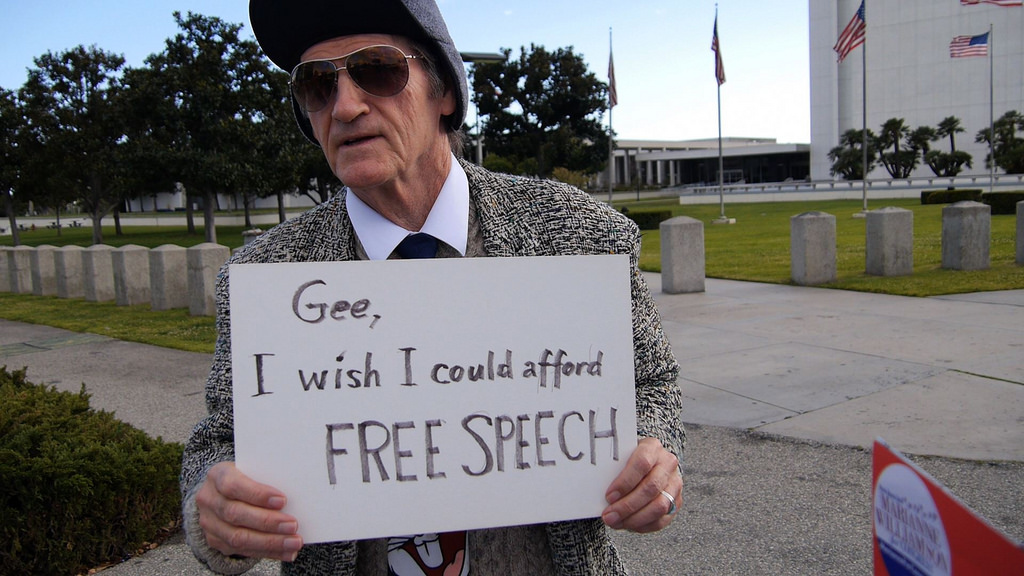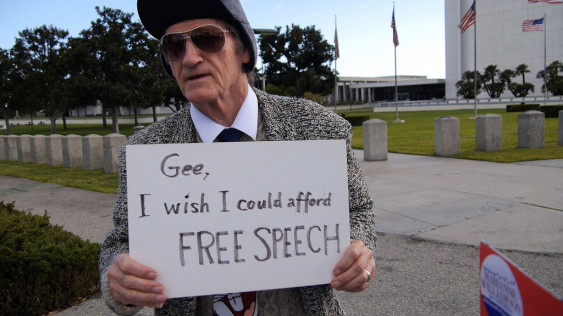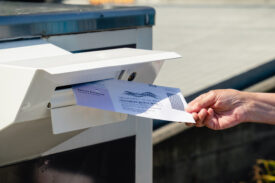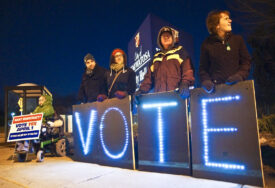The Seattle Times recently editorialized against I-122 Honest Elections Seattle. Its arguments include a litany of errors. To set the record straight, I’ll repost and correct each of the editorial board’s four points.
The Times writes:
The proposal counts on people not participating. . . . Only about . . . 13 percent . . . of the vouchers could be redeemed before the money runs out. While the initiative suggests all voters should have a chance to contribute to campaigns — using taxpayer dollars — it assumes only a small percentage of voters would actually bother to do so, even when the money doesn’t come out of their own pockets. More money, more apathy.
The truth is that Honest Elections Seattle projects and counts on more people giving to local campaigns than ever seen in Seattle or anywhere else in the United States. I-122 gives Democracy Vouchers to every registered voter in the city, giving them a chance to have a voice in local politics as never before. In my dreams, everyone would treasure and use those vouchers. In reality, most people will not. Vouchers start from a baseline of political giving that could hardly be lower: In Seattle’s 2013 elections only 1.5 percent of city adults made campaign contributions.
To set the Democracy Voucher dollar amount and budget limit, Honest Elections Seattle turned to similar programs that have operated successfully elsewhere. The closest thing to Democracy Vouchers is Minnesota’s system of political contribution tax refunds. There, candidates collect small contributions from voters; voters are reimbursed through tax refunds. Thanks to this system, Minnesota has among the highest rate of giving to campaigns anywhere in the United States. Among political scientists, it is regarded as an admirable outlier in democratic participation—a hive of civic engagement. And in Minnesota, what share of adults donate to campaigns? 50 percent? 25 percent? 13 percent? No. Three to four percent.
Honest Elections Seattle does not assume apathy. To the contrary, it assumes Seattleites will respond to vouchers in record numbers. Those of us who wrote it budgeted to accommodate for participation many times higher than in Minnesota and almost ten times the Seattle 2013 rate. What an enormous victory that would be for popular democracy! And still, there’d be plenty of money in the voucher kitty.
Moreover, if Seattle has the welcome problem of more participation than anticipated, I-122 is designed to adjust. The initiative gives the Seattle Ethics and Elections Commission (SEEC) the power to turn the dials on the program for each new election, to keep participation growing. It could, for example, stretch public funds by setting vouchers at $20 apiece instead of $25.
The Times writes:
The vouchers give well-organized candidates, especially incumbents, an advantage. Some members of activist organizations are giddy at the prospect of swooping up as many vouchers as early as possible. The vouchers would be mailed in January, well before the August primary and November general election. Filing week isn’t until late May, meaning a candidate who decides to take on an incumbent would be starting behind since voters might already have awarded their vouchers.
The truth is that Honest Elections Seattle strengthens people power by giving candidates a way to run for office without dialing for dollars. It helps challengers—especially grassroots campaigners—more than incumbents, bans special interests from collecting vouchers, and ensures that vouchers will remain abundant through the election year.
Activist organizations are banned from “swooping up as many vouchers as early as possible.” That’s called “bundling,” and it’s illegal under state law (see RCW 42.17A.470 or its plain-language explanation on page 33 of this PDC manual). I-122 says only candidates’ campaigns, not third parties or special interests, can collect vouchers from voters. It also contains ample other protections against misuse of vouchers. Membership organizations from unions to churches to the chamber of commerce to the Sierra Club are well within their rights to endorse candidates and encourage their members to donate vouchers, but the organizations cannot touch the vouchers. That power remains firmly in voters’ hands.
Further, political scientists who have studied the evidence conclude that small-donor citizen-funding systems (of which vouchers are one type) reduce the usual advantages enjoyed by incumbents (more research summarized here). Vouchers allow candidates with grit and a compelling message to fund their campaigns by knocking on doors and organizing house parties.
Many candidates, especially challengers, begin campaigning months before filing week in May. Underdog candidates in particular often start knocking on doors more than a year before the general election. With vouchers available in January, such campaigns get a path to viability—a path other than fundraising from one percenters.
Will incumbents gobble all the vouchers, leaving few for others? No, that’s mathematically impossible. All the way to Election Day, nine-tenths or more of vouchers will remain unassigned, waiting for a campaign to come asking. And, with vouchers at every address, incumbents and challengers alike will have every reason to spend time with voters in every part of the city, not just the neighborhoods with waterfront and view homes that currently fund Seattle candidates.
The Times writes:
The initiative calls for yet another property-tax levy that would cost about $8 per year for a home valued at $400,000. Proponents say that is a nominal amount compared with the costs of other levies. That’s true, but every new tax adds up.
Honest Elections Seattle is the smallest property tax levy in city history. It would add a paltry 0.062 percent of the city budget. At 65 cents a month for a typical homeowner, it’s so small that we who wrote I-122 gave the City Council the option of not bothering to collect it. If councilors prefer to pay for the program from the general fund, they can do that instead. Honest Elections is an incredible bargain, inoculating our democracy against the power and influence of big money for no more than the city currently spends on landscaping and tree care. In fact, Mayor Ed Murray’s new budget this week proposes spending more money on the Pronto bike share program than will go each year to Honest Elections Seattle.
The Times writes:
Limiting campaign spending is doubtful. Since the program is voluntary, candidates who chose to participate must agree to a spending cap, while those who don’t can raise as much as they want. But that rule can be bent. For instance, Candidate A raises cash through the vouchers and Candidate B raises private money. If Candidate B’s funds surpass Candidate A’s, then the cap is lifted and Candidate A not only can redeem vouchers up to the limit, but can also go out and raise unlimited private money.
I-122 limits big money in many ways. It lowers contribution limits, whether candidates qualify for vouchers or not, to $500 per donor. It outright bans contributions from entities that spend big on lobbying City Hall or earn big from city contracts. It demands faster disclosure of contributions and imposes stiffer penalties for violating the rules.
The Times’ contention that the “rules can be bent” misunderstands and misrepresents I-122’s “trigger provision.” I-122’s trigger is a protection of the voucher system, not a loophole out of it. The basic principal of the trigger is simple. In certain rare circumstances, when candidates who are collecting vouchers and campaigning by the Honest Elections rules—no big money, no secret money, limited spending—are themselves targeted by deep-pocketed “independent expenditures” run by a business associations, a trade union, or a local billionaire they can win authorization from the SEEC to raise and spend beyond the cap that otherwise binds them in order to defend themselves against those big-money attacks.
Such provisions are common in public-campaign-funding systems in the United States, including in Los Angeles and San Francisco (see the presentations and video from the January 13, 2013 forum here.) When the Seattle City Council placed a small-donor matching-grant public funding proposal before the voters of Seattle in 2013, drafted in collaboration with SEEC, that measure included a trigger provision. Honest Elections Seattle simply carried forward this part of the council’s policy.
Triggers answer two needs. First, candidates will not opt into a public funding system that caps their spending if it requires them to disarm unilaterally. Second, Citizens United and other court rulings leave us few options for constraining self-serving third-party IEs, but they do allow us to discourage candidates from tolerating them.
Most IEs are made to curry favor with a candidate. If candidates put the word out that anyone running an IE on their behalf will be persona non grata in their administrations, many IEs will never happen. And with the trigger provision, many candidates will do just that: they won’t want to free their opponents to raise and spend extra money.
The trigger provision reassures candidates they can participate in the voucher program without giving up their right to defend themselves against big-money attacks. It also encourages all candidates to tell their moneyed allies to keep mum. The details are here.
Honest Elections Seattle changes the game for candidates. Instead of chasing donors, they’ll chase voters. But new games have new rules, and the Seattle Times editorial board got confused by the new rule book.
If you’d neither heard of nor played the game Monopoly, and you had to learn by reading the rules, you’d probably conclude the game was impossibly complicated and ripe for cheaters. (I’m serious: try reading the rules.) The actual game of Monopoly, on the other hand, is easily mastered by school-age children—by playing the game.
Reading the rules of Honest Elections Seattle can be confusing too. I know because I helped write them. Once it’s operating, though, Honest Elections Seattle will seem simple as a board game to all. It is simple: best-in-the-US rules on lobbying, ethics, and transparency plus a transparent and intuitive method of giving political voice to every voter in the city—by making them all potential $100 donors to local candidates. Plus, it has built-in mechanisms to adjust the program as participation grows.
The Seattle Times missed a chance to endorse it. Voters should give the newspaper many chances to celebrate it as its benefits unfold in the years ahead, by ignoring the editorial board’s confused and mistaken arguments and voting Yes on I-122.










John Gear
You mean the newspaper that represents the people who buy and sell the candidates now doesn’t support system that interferes with their market? I’m shocked!